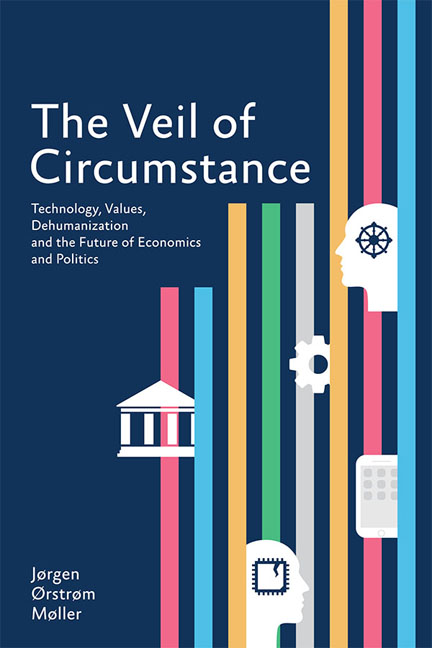 The Veil of Circumstance
The Veil of Circumstance 7 - The Transition
from III - ECONOMICS
Published online by Cambridge University Press: 19 May 2017
Summary
No economic model lasts forever. Industrialization served the world for more than two hundred years, but is now crumbling — by faster and cheaper communications and growing resource scarcities.
Key Concepts
The object of economics is to satisfy human needs, to make people happy. Increasingly, mass communication is replacing mass consumption as the main vehicle in this search for “happiness”. The availability of resources dictates production processes. From the beginning of the industrial revolution to the year 2000, the international terms of trade favoured resource-importing countries. Since then the trend has reversed, foreshadowing an era of economic or possibly physical scarcity.
A transition in economics occurs when the conditions underlying economic transactions force fundamental changes in the economic behaviour of companies, individuals and the public sector. It is not important whether these conditions are economic, technological or cultural — what matters is that they change economic behaviour. Economic operators and decisionmakers start to do things they did not do before, and the things they were doing before, they now do differently.
The industrial revolution was itself such a transition — going far beyond just economics — constituting a paradigm shift as defined by Kuhn (1970). Basically, economic operators replaced manpower with steam engines. About a hundred years later, electricity triggered a new transformation, as did the motor car. Around 1950, the first signs of an audio-visual revolution became visible, initiating new methods of communication.
Economists have jumped at the opportunity to explain why, when and where these revolutions happened. Explanations based on interactions between technology, societal norms and the organization of societies takes us some of the way. To this must be added the size of the market as a driver. Britain could not rely on the British Isles solely, and was forced by economics to build an empire. The United States had a larger market than Germany, which enabled it to make itself Britain's successor.
At the beginning of the twenty-first century, two new transitions loom ahead of us, promising opportunities, risks, and even dangers.
The first of these is the transition from mass consumption to mass communication, turning on the most basic question of all — what constitutes human happiness or well-being? What makes human beings feel comfortable and at ease?
- Type
- Chapter
- Information
- The Veil of CircumstanceTechnology, Values, Dehumanization and the Future of Economics and Politics, pp. 151 - 163Publisher: ISEAS–Yusof Ishak InstitutePrint publication year: 2016
